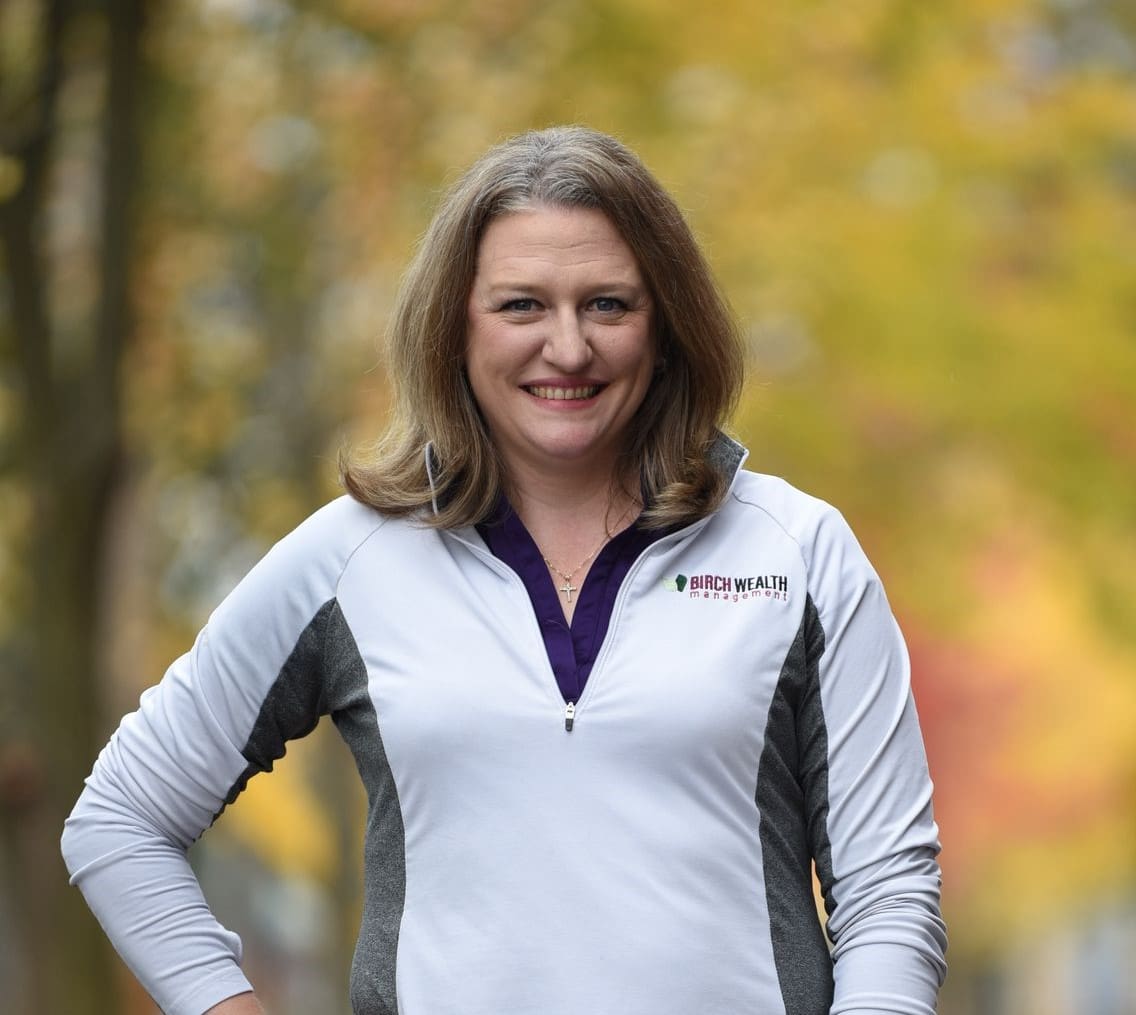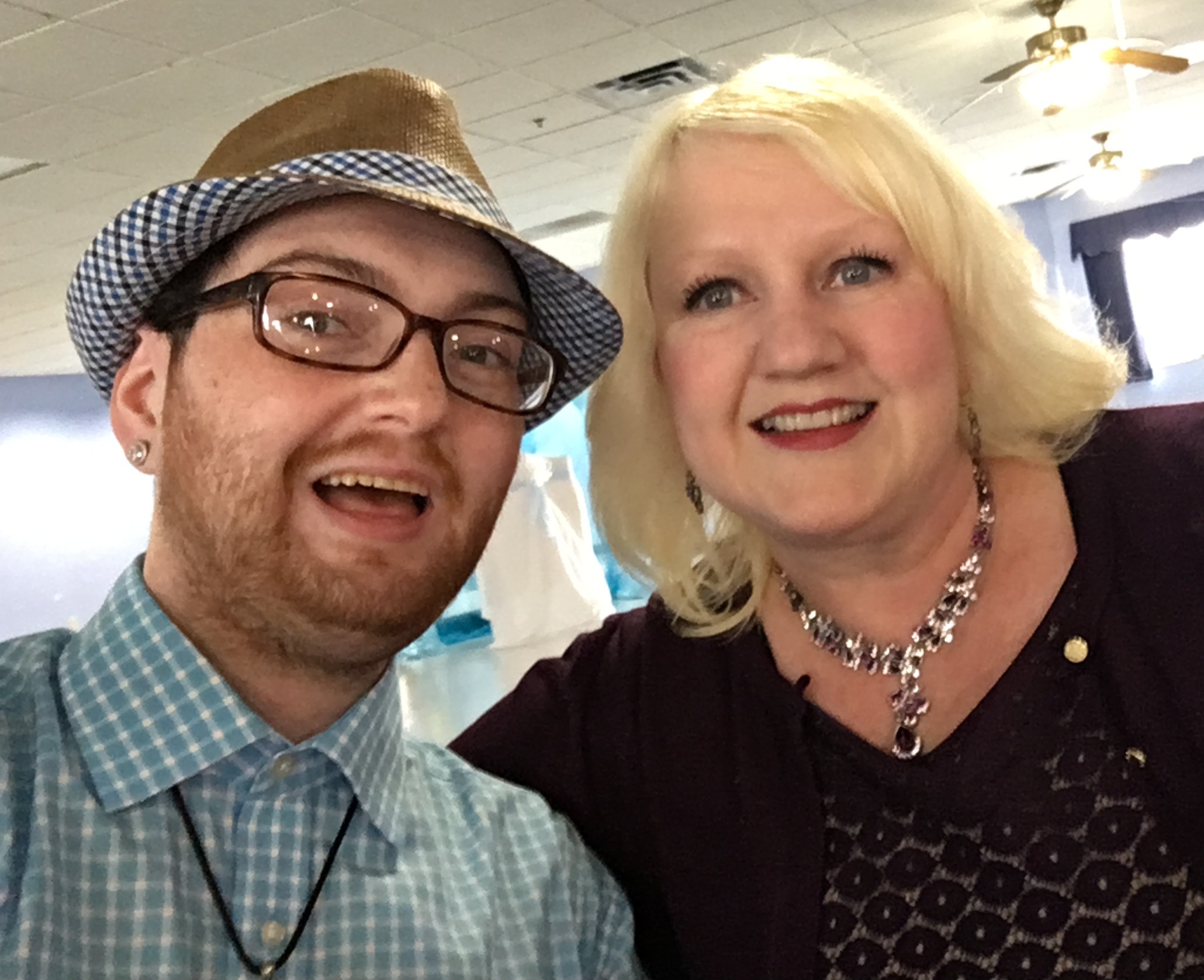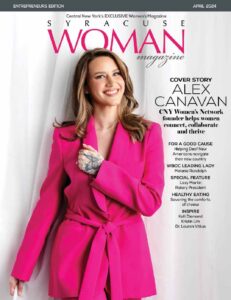Local mom provides insight without sight
By Jason Klaiber
Erin Czadzeck will tell you herself: she won’t let anything get in her way. Not even a pesky lamp or a chair that hasn’t been pushed into the table properly will stop her for long, though a pair of shoes left in the middle of the family room floor is liable to trip her up just a bit.
Diagnosed with retinitis pigmentosa at the age of 4, Czadzeck experienced gradual loss of sight in the ensuing years. By the time she was in her early 20s, she could no longer tell apart faces or colors, finding only enough vision to distinguish between light and dark while recognizing a minimal amount of movement.
Erin’s father, John Scala, remembers noticing signs of impairment when she was about three and a half, back when she would grab her mother’s hand in the dimly lit restaurants and movie theaters the family entered. At first Scala chalked it up to a fear of the dark, but his daughter’s tendency to stumble over objects in her path and turn her head during a game of catch, denoting a reliance on a specific part of the retina, led him to believe otherwise.
Upon being diagnosed with the condition in 1990, doctors revealed to Czadzeck that total blindness was a potential end result, so as a grade schooler in the Baldwinsville School District, she reluctantly began learning Braille at the urging of her parents.
Amid that stage of life, when she found herself perfectly able to read with her eyes and keep up in organized sports — even excelling in some — Czadzeck didn’t see the need to acquaint herself with the tactile code, which she now uses for everything from labeling medicine to writing grocery lists.
“I’m extremely grateful that that was a decision made on my behalf because I use it on a daily basis,” Czadzeck, now going on 35, said.
Her visual decline happened to set in sooner than it has for others with the same genetic disorder, some of whom can, in their 70s, still read large-print materials and recognize faces.
“High school I think is where it really started to hit,” Czadzeck said. “My eyes would get fatigued very quickly and things would just blur. I couldn’t read as much as I needed to or wanted to, so I had things read to me by a teaching assistant.”
In addition to attending VISIONS Conferences with Erin, for well over a decade the Scalas annually held golf tournaments that doubled as fundraisers for research. They also started a Syracuse chapter of the Foundation Fighting Blindness, then called the National Retinitis Pigmentosa Foundation.
For those who were around her day in and day out, including an older brother and two older sisters, the routine of helping Erin find her way around eventually became second nature. During her college years, however, she concluded that a successful future would result from learning more skills herself, a realization that she said steered her toward six months of training at a center for the blind in Littleton, Colorado. There she learned how to use a cane, navigate a city and cook a meal that would feed over 50 people.
“Don’t let the fact that you have a visual impairment or blindness stop you from chasing your dreams or reaching for the stars,” Czadzeck said. “Everybody has bumps or roadblocks along the way. That’s just part of being a human. You figure it out and roll with the punches.”
Now that she has a son to raise, Czadzeck has also had to get used to dressing him in the morning on top of changing diapers and making bottles of baby formula.
Following a suggestion made by her husband, Tim, she decided to start an online journal in April 2020 at the address blindmommyblog.com, which she uses to relay how she manages to keep one step ahead not just as a blind woman, but as a mother to one-year-old Noah.
On that site, Czadzeck catalogues her thoughts as well as recipes, humorous anecdotes and tips for those new to parenting.
For one, she has recommended accessible toys that can be created from household items, such as a rice-filled water bottle that Noah uses as a rattle of sorts. She also posted last November about the types of crib sheets, sippy cups and laundry soap that have best served her and her husband.
Though unsure about how exactly her retinal disorder was passed down through the lineage, Czadzeck does remain certain of one thing: that her son, who she refers to as “the cutest little munchkin,” has brought her a wealth of happiness despite the sleepless nights.
“He’s just the joy of my world,” she said.





